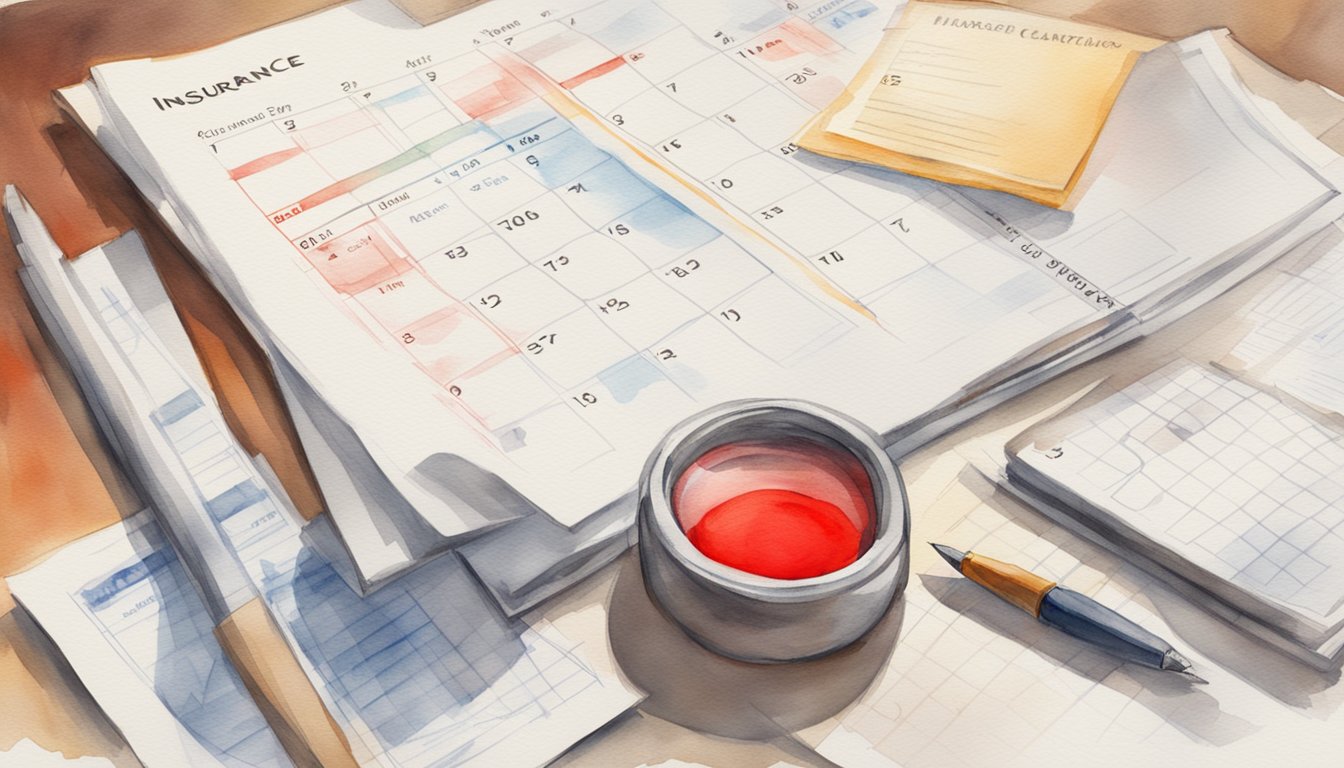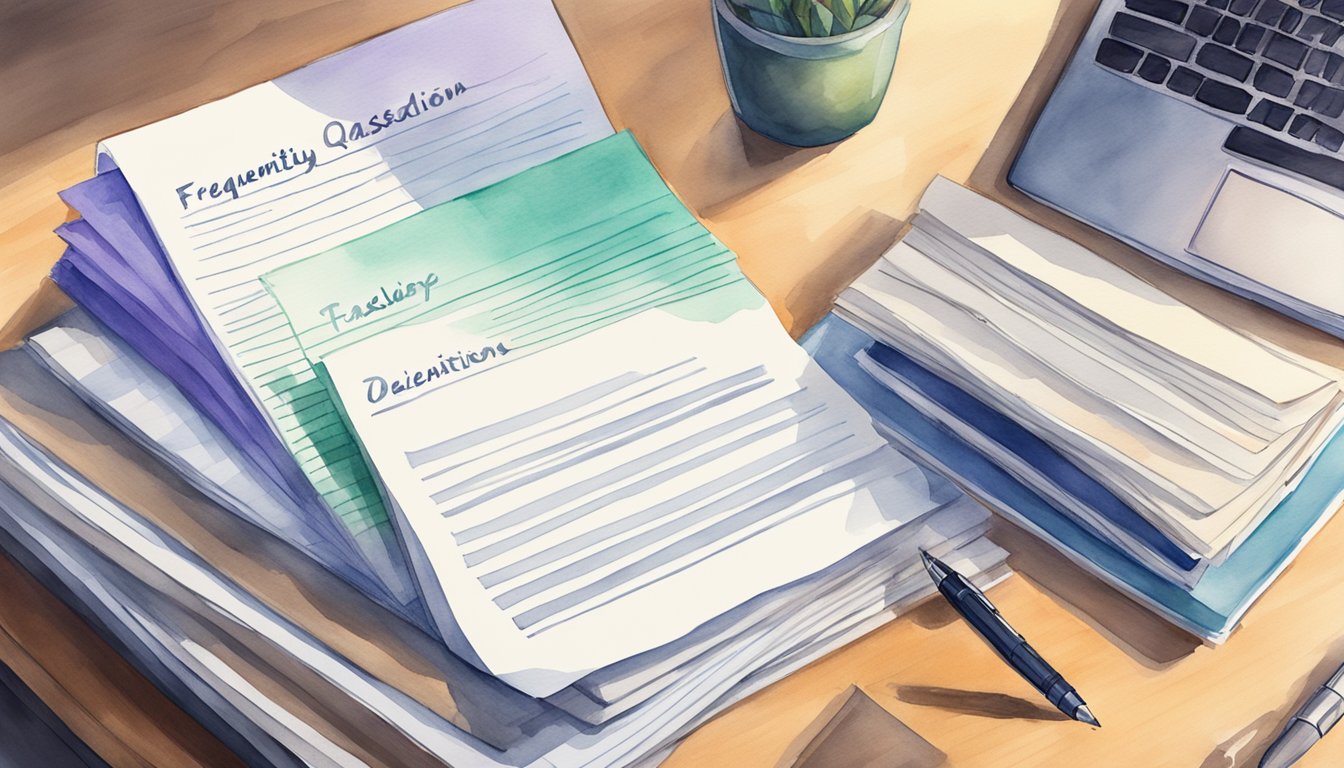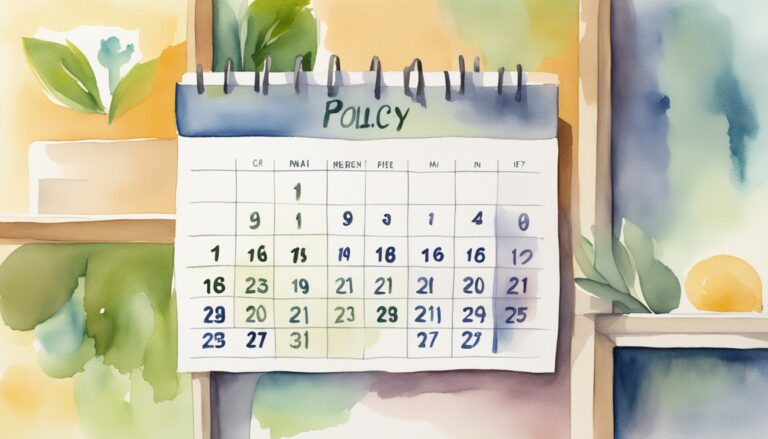What Does Policy Lapse Mean?

A policy lapse occurs when an insurance policy ends because the policyholder fails to pay the premiums on time.
This can happen with various types of insurance, including life insurance, auto insurance, and term life insurance.
When a policy lapses, the coverage provided by the insurance company stops.
This means you no longer have the protection or benefits that the policy offered.
For instance, a lapse in a life insurance policy means the policyholder’s beneficiaries will not receive the death benefit.
Common Reasons for Policy Lapse
- Missed Premium Payments: One of the most common reasons for a policy lapse is missed premium payments. Whether premiums are paid monthly or annually, failing to make these payments results in the lapse.
- Expired Grace Period: Most insurance policies have a grace period after the premium due date. If you do not pay within this period, your policy lapses.
Implications of a Policy Lapse
- Loss of Coverage: Once a policy lapses, you lose the insurance coverage. This is particularly serious in life insurance, where a policy lapse means no death benefit is paid out.
- Potential Fees for Reinstatement: To reinstate a lapsed policy, you may need to pay any missed premiums along with reinstatement fees.
Types of Insurance Affected
- Life Insurance: Both term and permanent life insurance policies can lapse if premiums are not paid.
- Auto Insurance: Your auto insurance policy can also lapse, leading to no coverage in case of an accident.
- Term Life Insurance: This type of life insurance is particularly prone to lapses since it typically has no cash value to borrow from for unpaid premiums.
Being aware of these factors can help you avoid the negative consequences of a policy lapse.
Make sure to keep track of your premiums and payment schedules to maintain continuous coverage.
Examples of Policy Lapse in Practice

When you miss a payment on your insurance, the coverage can lapse.
This lapse means you no longer have financial protection until you resolve the issue.
One common example is when you forget a home insurance premium.
If you miss this payment, you might face a grace period.
This short window allows you to make up the missed payment without losing coverage.
Auto insurance lapses are very serious.
If you’re caught driving without insurance, you could face severe penalties, especially as a high-risk driver.
In some cases, you might be required to obtain an SR-22, a certification proving that you have the required amount of insurance.
For those with health insurance, policy lapses can lead to being uninsurable for a period.
Missing premium payments might mean you’ll need to wait for the next enrollment period to get covered again.
Reinstating a lapsed policy often involves reinstatement procedures.
These procedures can include paying missed premiums plus any additional fees.
Consulting a financial advisor can be helpful in these situations.
Taking proactive measures such as setting up automatic payments can prevent lapses.
This ensures your payments are made on time, maintaining your right to continuous coverage.
Mortgage insurers especially stress the importance of continuous coverage.
If your home insurance lapses, the lender might buy their own insurance for you, which typically costs more and offers less coverage.
In the event of a natural disaster or other damage, having a lapsed policy can result in a significant loss of coverage.
This means any repair costs come out of your pocket, leaving you financially vulnerable.
Related Terms
Insurance Lapse
An insurance lapse happens when a policyholder stops paying premiums, leading to a loss of coverage.
This can apply to various types of insurance, such as life, health, and auto insurance.
For further details, visit the Insurance Glossary.
Insurance Provider
Your insurance provider is the company that offers your policy.
They are responsible for your coverage and claims.
Building a good relationship with them is key to managing your policy effectively.
Read more on understanding their roles here.
Financial Advisor
A financial advisor can guide you in selecting the right policy and managing premium payments.
They help you understand your needs and suggest suitable options.
Learn more about their role here.
Grace Periods
Grace periods are the additional time you get to pay your premium without losing coverage.
If you miss a payment, your policy won’t immediately lapse.
Utilizing this time wisely can prevent a lapse.
Term Life Insurance
Term life insurance provides coverage for a specific term.
If a payment is missed, the policy enters a grace period before it lapses.
Understand the implications if your term life insurance lapses.
Automatic Payments
Setting up automatic payments can help avoid missing premium payments.
This ensures regular payment without manual intervention.
Explore more on this method via the Insurance Glossary.
High-Risk Driver
A high-risk driver might face higher premiums due to their driving record.
It’s crucial for such drivers to maintain continuous coverage to avoid additional costs and complications.
Learn about insurance options here.
Home Insurance
A lapse in home insurance can leave your property unprotected.
Regular payments are essential to maintain coverage and protect against potential home-related claims, such as fire or theft.
Proactive Measures
Taking proactive measures like setting reminders or consulting a financial advisor can prevent policy lapses.
Preventative steps are critical in maintaining continuous coverage and avoiding higher premiums later.
Increased Premiums
Increased premiums often occur after a policy lapse, as insurers view lapses as risky behavior.
Staying on top of payments helps in maintaining lower premium rates.
Tax Implications
Policy lapses can have tax implications, especially with life insurance policies.
You might face tax penalties if you let your policy lapse, so always consider the potential tax consequences.
Reinstatement Process
The reinstatement process allows you to reactivate a lapsed policy by paying overdue premiums.
Contact your insurance provider to understand the requirements and procedures for reinstating your policy.
Frequently Asked Questions

When a policy lapses, it can have significant consequences for policyholders.
It’s important to understand the implications, reinstatement options, and potential refunds.
What are the implications of a lapsed life insurance policy?
A lapsed life insurance policy means the coverage is no longer active.
This could leave beneficiaries without financial support if the policyholder passes away.
Additionally, some benefits accumulated during the policy term may be lost.
Is it possible to reinstate a policy after it has lapsed?
Yes, many insurance providers allow you to reinstate a policy after it has lapsed.
This usually involves paying missed premiums and possibly undergoing a new medical examination.
The terms and conditions for reinstatement vary between insurers.
Under what circumstances can you receive a refund from a lapsed policy?
Receiving a refund from a lapsed policy generally depends on the type of policy and the insurer’s terms.
Some policies may return a portion of the paid premiums, while others might not offer any refund.
It’s essential to check the specific terms of your policy.
What is the legal definition of a policy lapse?
A policy lapse occurs when a policyholder fails to pay the required premium by the due date, resulting in the termination of the insurance coverage.
This definition applies across various types of insurance, including life, health, and property insurance.
How does a medical insurance policy lapse affect coverage?
When a medical insurance policy lapses, you lose your health coverage temporarily or permanently.
This can lead to significant out-of-pocket expenses for medical care without the safety net provided by insurance.
Some policies may offer a grace period to pay overdue premiums.
What is the duration of the lapse period in insurance terms?
The lapse period in insurance terms is the time frame during which the policyholder can pay overdue premiums to reinstate the policy.
This period varies by insurer and policy type but is commonly between 30 and 90 days.
Failure to pay within this period usually results in policy termination.






